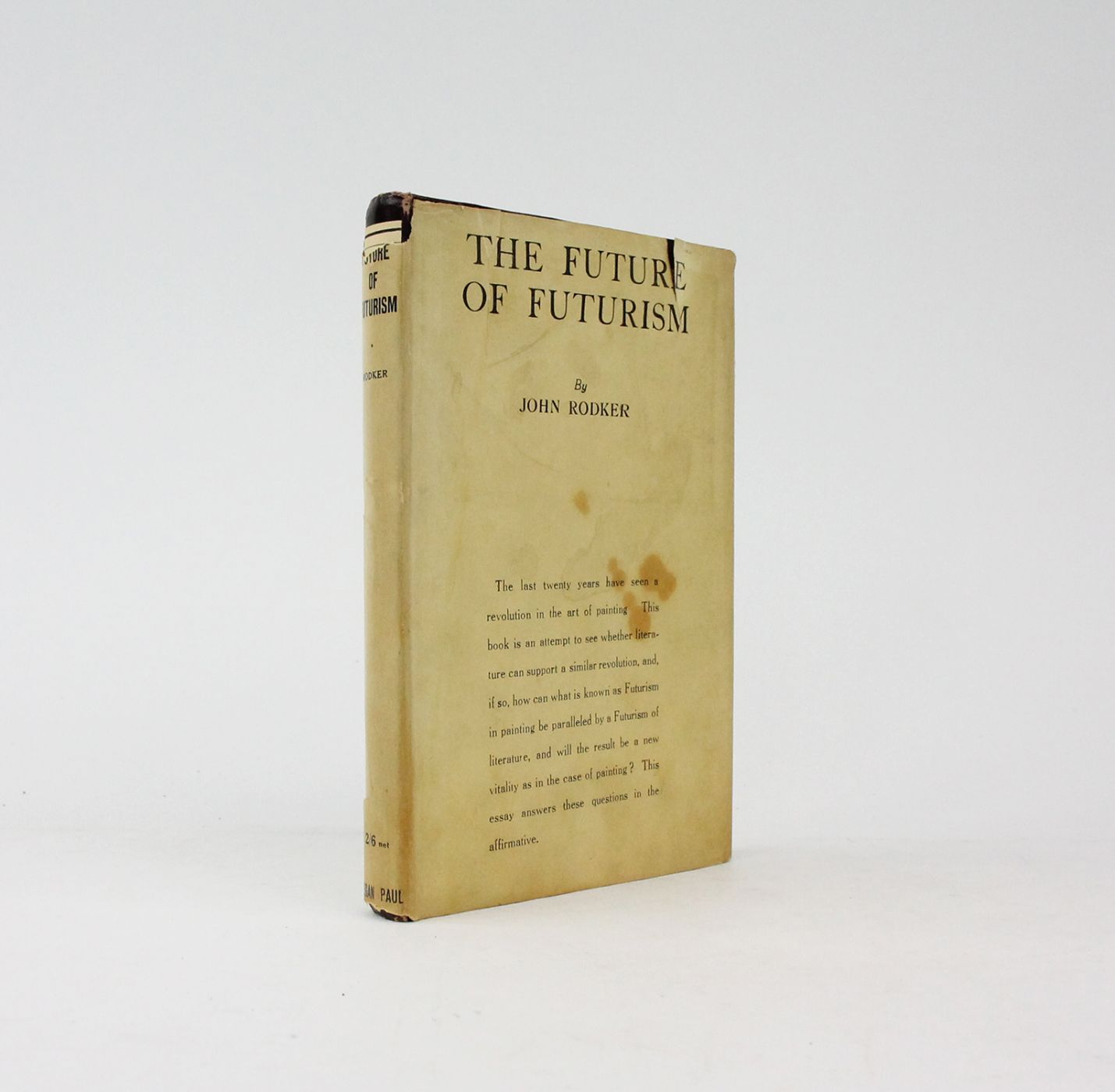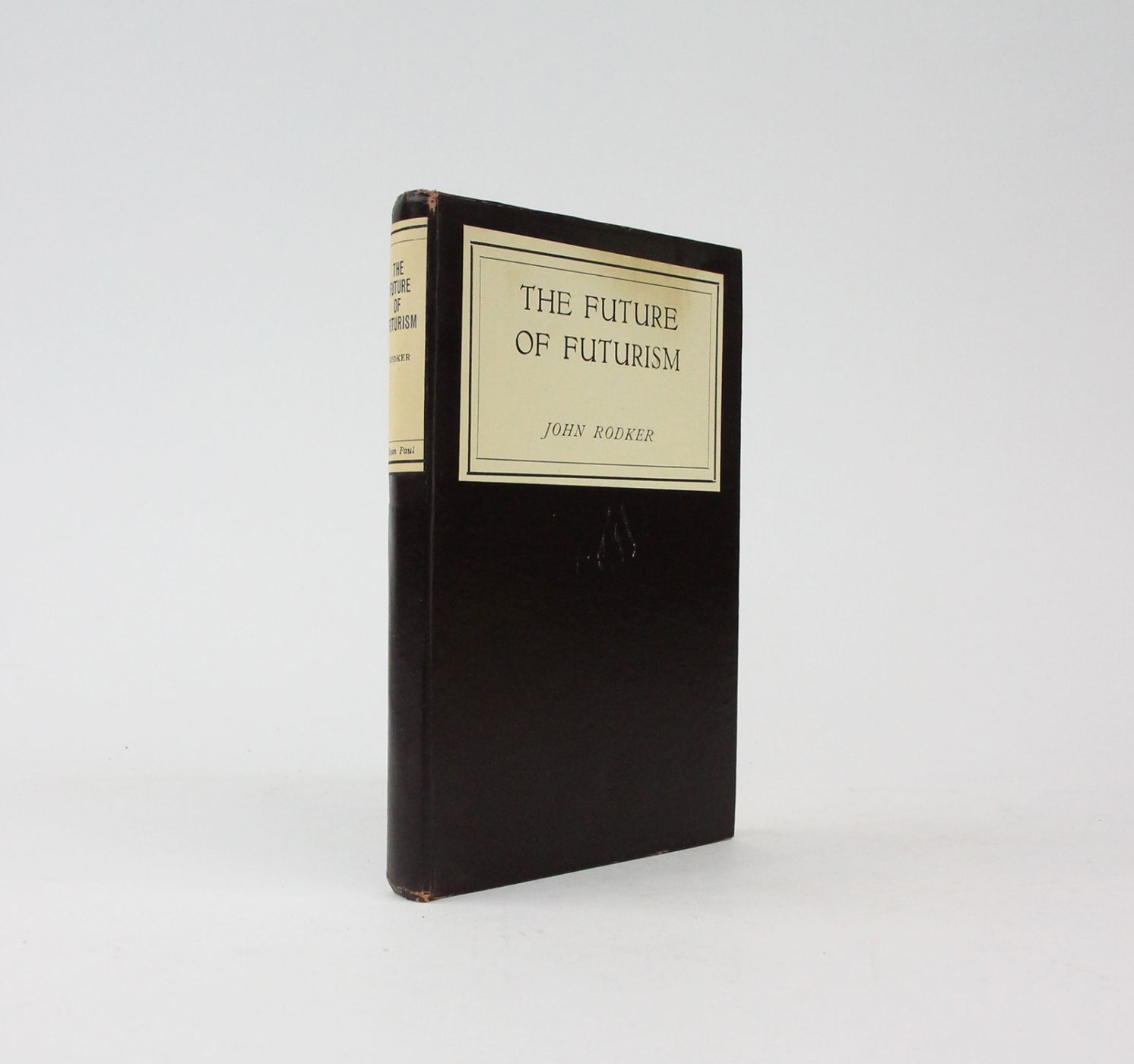THE FUTURE OF FUTURISM
First UK edition, first printing. Original dark maroon paper covered boards with white labels lettered in black to spine and front panel, in dustwrapper. A better than very good copy, the binding square and firm. the boards and labels bright and clean with some minor rubbing to edges (most noticeably to and around the spine tips). The contents are clean and bright throughout, without inscriptions or stamps. In the worn, toned and lightly soiled (though intact) dustwrapper, with patches of loss at both ends of the spine (c. 1 cm upper, c. 0.5 cm lower), some rippling to the upper half of the front panel which also has a 3.5 cm closed tear to the upper edge. There is another similar sized tear to the lower outer rear fold. Altogether, a very nice copy. Scarce in the dustwrapper.
Rodker, born in Manchester in 1894, became known as one of the 'Whitechapel Boys' (who met around the gallery located there), whose members included Isaac Rosenberg, Mark Gertler, David Bomberg, Samuel Weinstein and Joseph Lefkowitz, and who deftly straddled the visual and literary arts. Rodker published writings by both T. S. Eliot and Ezra Pound with his short-lived Ovid Press, as well as drawings by Wyndham Lewis and Henri Gaudier-Brzeska. He later joined the editorial board of the legendary 'The Little Review'. Rodker's little book on literary Futurism ("leav[ing] the arts of painting and music which are somewhat difficult to illustrate without examples") was warmly reviewed in 'The Nation and Athenaeum' (29 Jan 1927) by T. S. Eliot, who praised the author's "lively style; his thought […] apparently influenced by Mr. Wyndham Lewis and T. E. Hulme (which we are glad to find), and his syntax […] influenced, attractively, by Mr. Joyce's third manner. Mr. Rodker is up-to-the-minute, if anyone is; […] he has accomplished a considerable feat in writing, on such a vague subject, ninety-two extremely interesting pages."
Stock code: 20337
£125
Published:
Category
Modern First EditionsLiterature
Poetry



